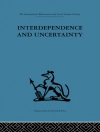The electricity sector’s reforms aim to modernise its infrastructure, rules, policies, and procedures to allow for more efficiency and for clean energy to have the same playing field in the power competition/wholesale/retail electricity market. This will enable inefficient power to be phased out gradually. Over the past 2 decades, there has been remarkable progress in the Association of Southeast Asian Nations (ASEAN) electricity markets that has increased the electrification ratio substantially; however, it has not achieved free market competition, universal electrification, and emission reduction plans. ASEAN aims to achieve universal access to electricity by 2030.
Electricity Market Reforms in ASEAN, China, India, and Japan provides 10 empirical studies investigating and evaluating the electricity market reforms in Southeast Asia, China, India, and Japan. The book analyses the electricity market policy reform plans, market liberalisation, tariff reform, electricity trade, renewable energy integration, resource allocation, and the sustainability of the electricity market in the region and these countries. It provides policy recommendations to foster the reforms and increase market efficiency.
Contents:
- Ways to Achieve a Sustainable Electricity Market in Southeast Asia (Farhad Taghizadeh-Hesary, Ehsan Rasoulinezhad and Han Phoumin)
- Assessing the Effects of ASEAN Liberalised Electricity Markets: The Case of Singapore and the Philippines (Hassan Ali, Han Phoumin, Beni Suryadi, Aitazaz A Farooque and Raziq Yaqoob)
- Resource Misallocation in Electricity Sector: Reform and Policies in China (Chin-Hsien Yu, Xinghao Li, Dayong Zhang and Han Phoumin)
- The Effect of Energy Sector Reforms on the Promotion of Renewable Electricity and Social Welfare in India (Sangeeta V Sharma, Han Phoumin and Vinod K Sharma)
- Strategies of Electricity Market Reform in Indonesia: Pursuing the Greening National Power System (Maxensius Tri Sambodo and Han Phoumin)
- Bilateral Electricity Trade between Singapore and Malaysia: Economic Efficiency and Welfare Implications (Youngho Chang and Han Phoumin)
- Ways to Enhance Efficiency and Reduce Emissions in the Electricity Markets in Singapore and China (Muhammad Mohsin, Han Phoumin and Farhad Taghizadeh-Hesary)
- Electricity Market Reform in the Philippines: Lessons for other ASEAN Countries (Muyi Yang, Deepak Sharma, Rabindra Nepal and Han Phoumin)
- The Impact of Electricity Tariff Reforms on Poverty in Lao People’s Democratic Republic (Phouphet Kyophilavong, Han Phoumin and Inpaeng Sayvaya)
- A Review of Electricity Market Reform in Japan (Hadi Farabi-Asl, Farhad Taghizadeh-Hesary, Han Phoumin, and Saeid Mohammadzade Bina)
Readership: Graduate students, researchers, experts, policymakers in the field of energy policy, energy economics, ASEAN and Asian studies, trade and economic integration.
Key Features:
- First book to investigate and evaluate electricity reforms in ASEAN, China, India, and Japan based on empirical studies
- Analyses the electricity market policy reform plans, market liberalisation, tariff reform, electricity trade, renewable energy integration, resource allocation, and the sustainability of the electricity market
- Provides policy recommendations to foster reforms and increase market efficiency in this region and other parts of the world












